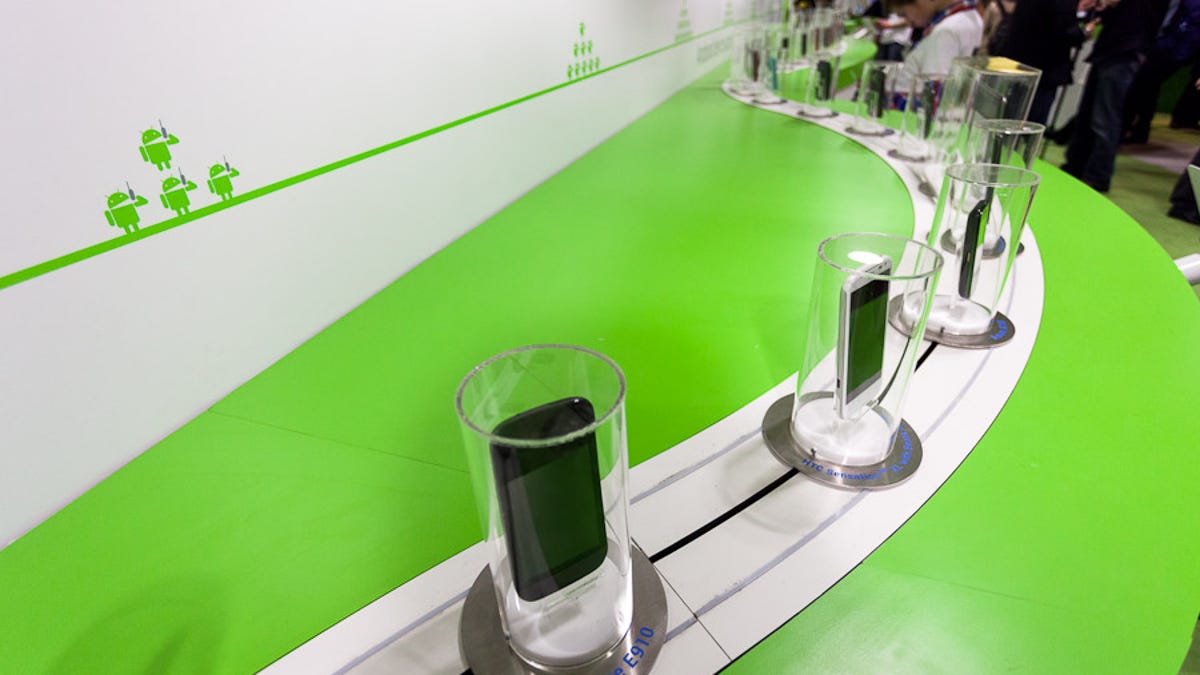Google puts Android on parade--literally
Wowed by the breadth of Android's hardware partnerships? Or repulsed by its chaos? Either way, you can see the history of Google's mobile OS slide by at Mobile World Congress.

BARCELONA, Spain--Love Android or hate it, there's no denying it's been a hit with device makers and carriers.
Exhibit A was on display at Google's booth at the Mobile World Congress show here in Barcelona, Spain. Dozens and dozens of Android phones and tablets slid by on a curving track that looped them continuously.
The collection featured some notable models such as the first to come to market, the T-Mobile G1 from October 2008. But then there were members of that vastly larger collection of forgettable models--useful to customers, perhaps, but probably nothing deserving even a footnote in the history of mobile computing or generating much in the way of passion.
The photo above shows the Hisense E910. Have you heard of it? Me neither.
Android chief Andy Rubin said Monday at the show that 300 million Android phones have been activated, a number currently increasing by about 850,000 per day. There are 450,000 apps in the Android Market, indicating that a big crowd of programmers is willing to put up with the difficulties of spanning all those devices.
Google hopes the Ice Cream Sandwich release of Android -- version 4.0 -- will ease some of the pains and unify the market. But it's not easy to get it onto Android phones, judging by the fact that Google released the ICS source code in November and plenty of new phones at Mobile World Congress still are saddled with the older version 2.3, aka Gingerbread.
Apple's iPhone gets a lot more credit for shifting the mobile industry, deserves the "iconic" label more than any Android phone I can think of, and has sold phenomenally well. But there's something to be said for the power of Android's numbers, too, and it was impressive to see the reach of Android's manufacturing partnerships. That represents a tremendous investment in design, engineering, and marketing that will pay dividends for years.
Updated 11:17 p.m. PT to correct the number of daily Android device activations. The number is 850,000.
